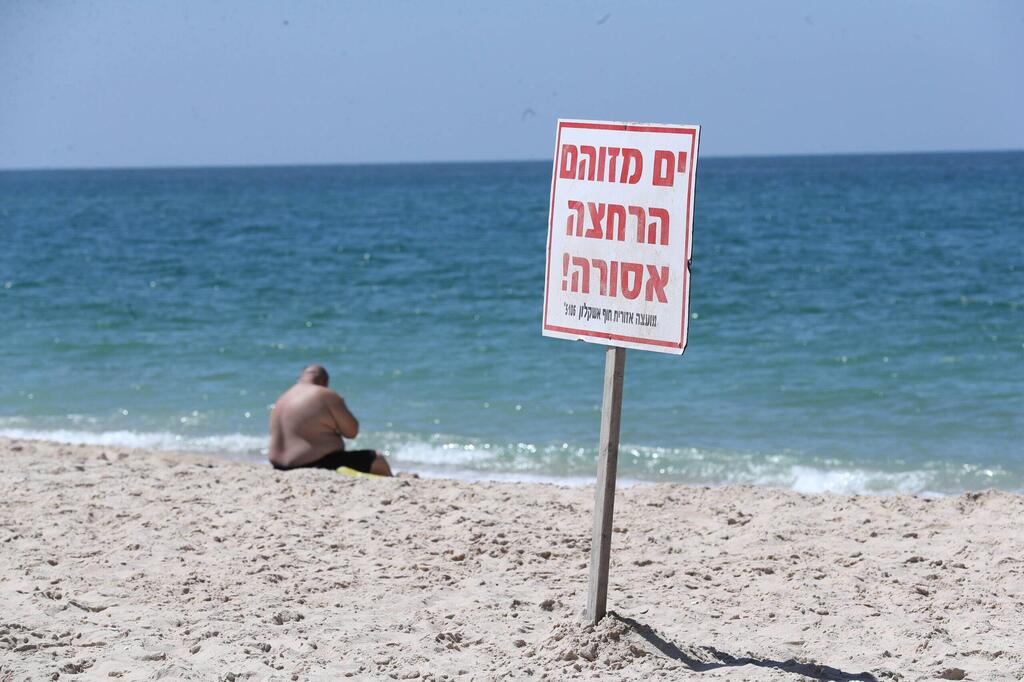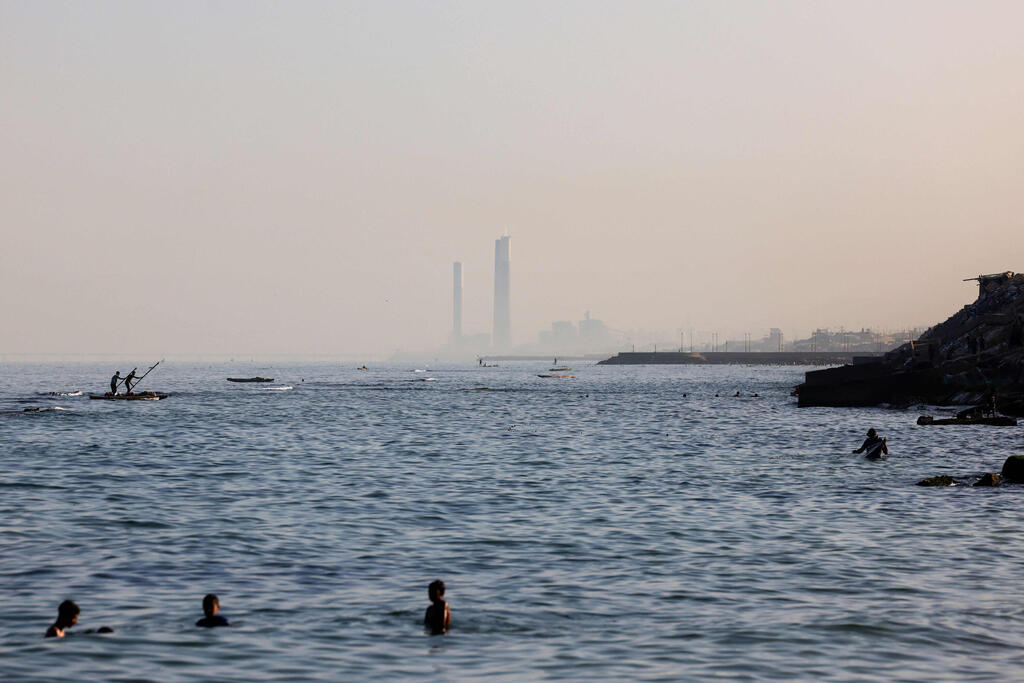Environmental calamities hold no regard for one's nationality or borders, be it Israeli or Palestinian. This truth is evident in the current dire situation unfolding in the Mediterranean Sea surrounding the Gaza Strip. In the northern region of the strip, which includes Beit Hanoun, Beit Lahia, and Jabalia, a sewage treatment facility has suffered a catastrophic explosion. The resulting spillage poses a grave threat to the inhabitants along the Mediterranean coastline, affecting both Gaza and Israel. Astonishingly, around 13,000 cubic meters of sewage flow from Gaza into the Mediterranean Sea each day, eventually reaching Israeli shores.
Read more:
In the wake of the disaster, Zikim Beach, the southernmost stretch of coastline in Israel that borders the Gaza Strip, has been declared off-limits for swimming since Thursday. Recent water samples reveal biological irregularities that have sparked concerns regarding public health. As a result, the beach remained closed for swimming throughout the weekend as well as on Sunday.
It is not unprecedented for sewage from the Gaza Strip to cause the temporary closure of an Israeli beach. Throughout the 2023 bathing season, Zikim Beach faced multiple closures due to pollution or water contamination. This was a direct consequence of incidents in which Palestinians diverted sewage from the strip into the Hanoun River, which traverses Israeli territory.
It poses a significant threat to the environment. Apart from the bothersome presence of mosquitoes and flies, the sewage infiltrates deep into the soil, contaminating the already polluted groundwater in certain areas of the Gaza Strip due to mismanagement by the local authorities.
In Israel, there is diligent monitoring of the operations at the wastewater treatment facility located in the northern part of the strip, with timely updates provided in case of any malfunctions that could impact Israel. The coordination of government efforts in the region allows engineers and various companies unrestricted access to assist Palestinians in repairing the sewage facility, including providing equipment necessary for the repairs.
However, there is an underlying problem; Even if Israeli technicians are inserted to correct the situation, it will merely serve as a temporary solution, given that it is only a matter of time before a similar malfunction occurs yet again. Population numbers within the enclave are expected to increase, further burdening existing infrastructure. Thus, it is imperative the Palestinians erect additional structures to facilitate the existing sewage maintenance issues.
In an effort to temporarily circumvent the problem, Israel is attempting to connect the Gaza treatment facility to a sewage treatment facility in the southern town of Sderot.
In the coordination and liaison headquarters located in the Gaza Strip, there is a persistent call from the authorities to the local governing bodies, urging them to take action and put an end to the discharge of sewage into the sea. Regrettably, this appeal often falls on deaf ears within Gaza, which is under the control of Hamas.
"Despite this challenging situation, Israel continues to provide the necessary resources and tools, driven by our commitment to safeguarding a pristine environment and the well-being of the public. However, it is essential to acknowledge that our capabilities have limitations. The Palestinians must come to realize that the forces of nature transcend man-made borders, and any damage inflicted upon it affects both parties involved," according to a source within the security establishment.
Dafna Zeira, the director of the Environmental Health Office in the Ashkelon district told Ynet and Yedioth Ahronoth: "From our perspective, we are dealing with a serious incident that continues to unfold. Based on information that I have been able to gather, it appears that, since Thursday, large quantities of wastewater have been flowing into the Mediterranean Sea and Hanoun River. Approximately 13,000 cubic meters of sewage have been discharged. As a result, we have taken preliminary steps and closed the Zikim Beach for swimming. We are also taking water samples and monitoring the situation."



